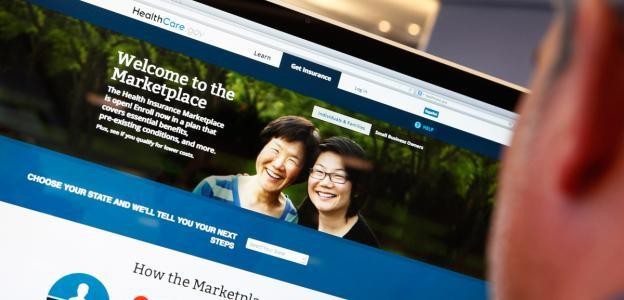Companies Obamacare is hurting our profit!
Post on: 16 Март, 2015 No Comment

Companies find all sorts of excuses during earnings season for disappointments, with the weather being an all-time favorite. But some companies are finding a new scapegoat: Obamacare.
Thirty companies in the Standard & Poors 500, including United Parcel Service. General Electric and retailer Dollar General. have mentioned the Affordable Care Act during their conference calls since March 1 and all through the first-quarter earnings season, says John Butters, analyst at financial data research firm FactSet. Thats a healthy cross section of companies if you consider that so far, 446 companies in the S&P 500 have reported first-quarter results.
Exactly half the companies that mentioned the Act are in the healthcare industry, where theres a direct interaction with the new law. But in the other half, companies ranging from many industries discussed the fallout of the Affordable Care Act on their business.
Most of the companies talking about the law did so negatively, pointing out how it either hurts demand for their business or causes costs to increase. There are legitimate complaints, says Kip Piper, an independent consultant that advises companies on health-care plans. The ACA does impose costs and obligations that cost money.
Some companies are pointing to the Affordable Care Act for driving up insurance costs. And this comes as health-care spending rose at an annual rate of 9.9% last quarter, the Bureau of Economic Analysis says, the fastest rate of increase since 1980. But others are saying that the new law is affecting demand for its products. Consider a few examples:
* General Electric. The diversified manufacturer blamed the Affordable Care Act for the soft performance of its healthcare unit. GE said hospitals and clinics were delaying equipment purchases due to the law. General Electric reported first-quarter revenue of $34.2 billion, just shy of the $34.4 billion expected by analysts, says S&P Capital IQ. GEs quarterly adjusted profit of 33 cents a share, though, beat Wall Street forecasts by 3%, says S&P Capital IQ.
* UPS. The shipping company cited changes in the healthcare laws, namely the Affordable Care Act, for driving up health-care costs for employees. To respond to the rising costs, UPS is moving its employees to a defined contribution health care plan, a change that will result in the company eventually booking a large one-time charge. UPS reported a quarterly profit of 98 cents a share, missing Wall Street forecasts by 9%, says S&P Capital IQ.
* Dollar General. The discount retailer says the Affordable Care Act is causing its overhead costs to increase, causing a hit to earnings of between 2 and 3 cents a share. The company reported an adjusted quarterly profit of $1.01 a share, missing estimates by 1%, says S&P Capital IQ.
* Cognizant. The technology outsourcing company blamed the Affordable Care Act for causing its revenue growth to slow to its lowest pace in years. The company offers business services like bill and call processing for healthcare providers. Many of these healthcare providers are offering health-care services to people who enroll in the new government health-care system, which was initially slow to take off. The company reported quarterly revenue of $2.4 billion, roughly in line with views. Quarterly profit, however, exceeded expectations by 5%.
But its not all negative. Paychex. a provider of payroll services mainly to smaller businesses, mentioned the Affordable Care Act as a possible opportunity for it going forward, despite causing some short-term delays in health-care related spending by its customers. Paychex sees that many smaller businesses will hire it to help them managed the requirements of the law. And WellPoint. the No. 2 health insurer, on April 30 said its business of providing a medical exchange under the Affordable Care Act was a sustainable venture.

And some companies see both positives and negatives. Insurance service provider Assurant cited the Affordable Care Act as a negative in that health care reform resulted in a $5.7 million increase to income taxes, since fewer costs are deductible, it says. But the same company said that act resulted in strong sales demand for its products, allowing the unit that sells health care services to post record revenue.
Whether more companies will start blaming the Affordable Care Act for earnings problems is subject for debate. The negative hit, especially to companies selling medical gear, will be short-lived, says Daniel Holland, analyst at Morningstar. He says the hit to sales is temporary as uncertainty stymies decision making, but eventually greater demand for health-care services will increase the need to buy new medical equipment from companies like GE. My sense is that this is more of a temporary effect, Holland says, referring to sellers of medical equipment like GE.
White House spokesperson Jessica Santillo says that the Affordable Care Act has been a positive for the economy and its workers. Thanks to the ACA, deficits are projected to be cut by $1.7 trillion over two decades, which will help make it easier for companies to invest, she says. More entrepreneurs can strike out on their own without fear of being locked out of the health insurance market.”
Expect more companies to cite the costs of the law in future earnings reports, says Nicholas Heymann, analyst at William Blair. Some companies will note how the law drives up the cost of providing health insurance while manufacturers will see weaker demand for medical devices due to the uncertainty over what investments will be deductible, he says.
This type of disruption is more concerning than a hit due to severe weather because its ongoing, Heymann says. Its a structural impact, he says. Many unintended consequences are starting to appear, Heymann says.
Contributing: David Jackson














